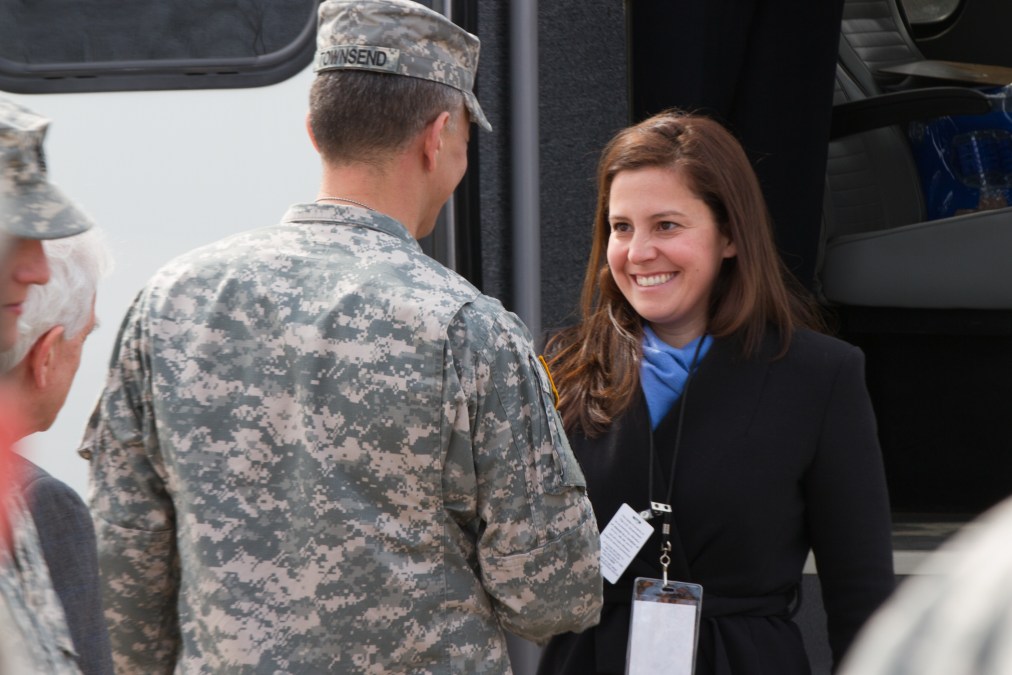Rep. Stefanik chats with industry on how DOD can leverage AI

Rep. Elise Stefanik, R-N.Y., hosted a group of the tech leaders in a closed-door session Thursday centering on the benefits and best practices of adopting artificial intelligence and how they could apply to national defense.
The session — which included representatives from companies like Pilot.ai, FireEye, Accenture, and the Boston Consulting Group — focused on the strategies industry is using to best capitalize on AI technologies, officials said, and how they may translate to ongoing projects within the Department of Defense.
“We have seen progress in Department of Defense artificial intelligence pilot programs, but now we must scale to success,” Stefanik said in a statement. “Yesterday was a good next step in identifying where corollary successes exist within the commercial sector and artificial intelligence solutions have already demonstrated quantifiable results.”
AI and its applications have been of particular interest to Stefanik. The chairwoman of the Armed Services Subcommittee on Emerging Threats and Capabilities introduced legislation in March to create an independent commission to examine AI advances and provide recommendations on how to apply the technology to the federal government, especially in national security applications.
AI was also one of the technologies identified in FedScoop’s Emerging Tech 2018 list.
But the DOD’s use of AI and machine learning have also courted controversy. Google has worked with the Air Force on an initiative called Project Maven that uses AI to help optimize the analysis of full-motion video surveillance, but announced recently that it has declined to pursue another contract after several employees resigned in protest.
Stefanik pointed to Project Maven specifically as one positive example of how the DOD leveraging AI technology and its potential applications. By engaging industry, she hopes to better utilize AI for defense.
“Over the last year, we have explored technology issues that could drastically change the way wars are fought, impacting not only our national security, but our economic security as well,” she said. “We are encouraged by the Department’s aggressive efforts with Project Maven, and are interested in exploring other applications of AI that combine the strengths of government, industry and academia to forge strong and lasting public-private partnerships.”






